Supporting Materials
What’s the best way to do effective research for your TeenTech Award projects? Time invested wisely pays dividends and we are grateful to the Information Literacy Group at CILIP for working with us to produce a set of really helpful tips and guidelines.
From how to get the best results from Google to how to protect your IP, you’ll find the ideas very useful for all projects you may be doing at school or college.
Research Materials
The TeenTech Awards Research Pack includes...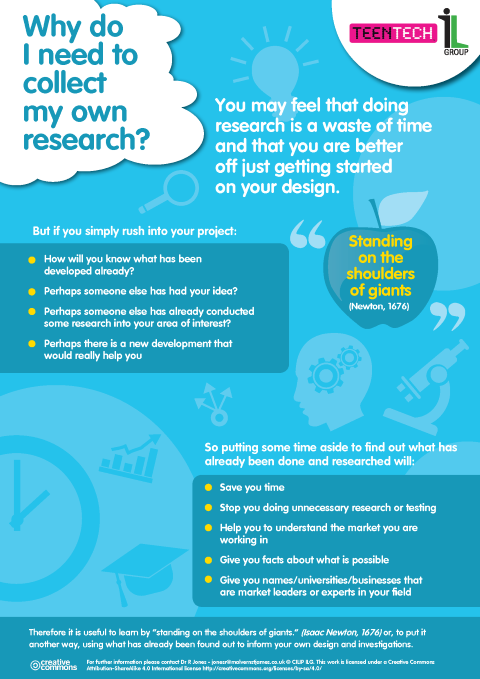
But if you simply rush into your project:
- How will you know what has been developed already?
- Perhaps someone else has had your idea?
- Perhaps someone else has already conducted some research into your area of interest?
- Perhaps there is a new development that would really help you
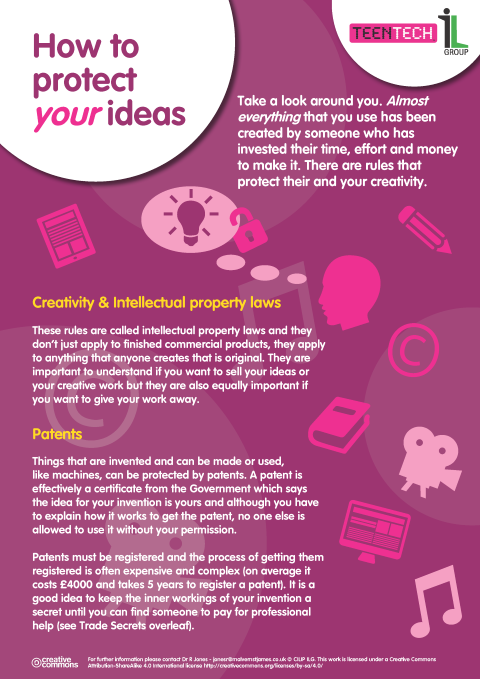
Creativity & Intellectual property laws
These rules are called intellectual property laws and they don’t just apply to finished commercial products, they apply to anything that anyone creates that is original. They are important to understand if you want to sell your ideas or your creative work but they are also equally important if you want to give your work away.
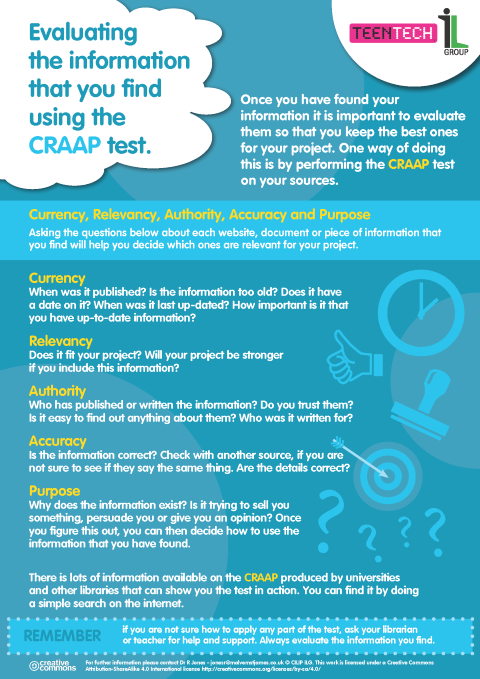
One way of doing this is by performing the CRAAP test on your sources.
Currency, Relevancy, Authority, Accuracy and Purpose.
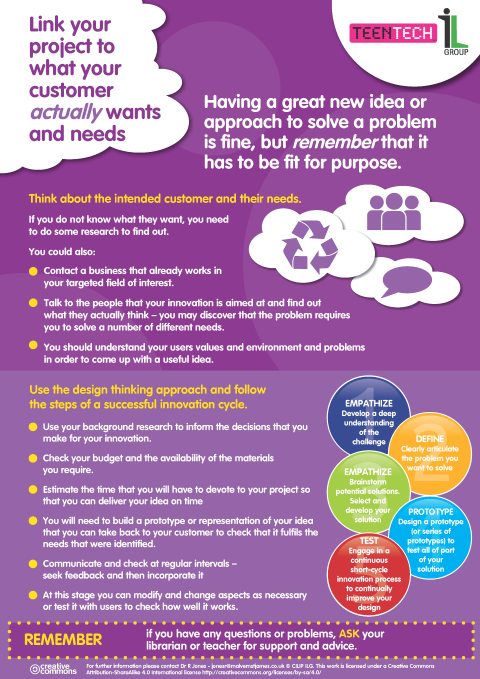
Think about the intended customer and their needs.
If you do not know what they want, you need to do some research to find out.
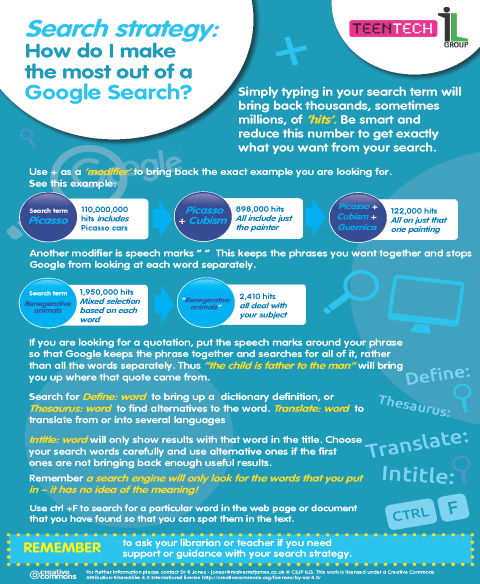
Be smart and reduce this number to get exactly what you want from your search.
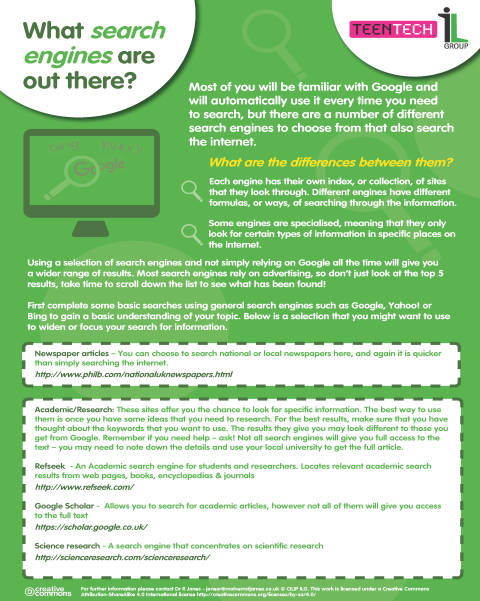
What are the differences between them?
- Each engine has their own index, or collection, of sites that they look through. Different engines have different formulas, or ways, of searching through the information.
- Some engines are specialised, meaning that they only look for certain types of information in specific places on the internet.
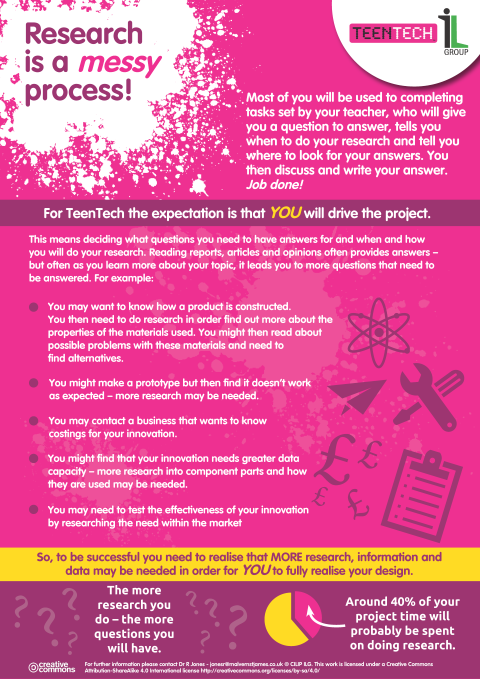
For TeenTech the expectation is that YOU will drive the project.
This means deciding what questions you need to have answers for and when and how you will do your research. Reading reports, articles and opinions often provides answers – but often as you learn more about your topic, it leads you to more questions that need to be answered.
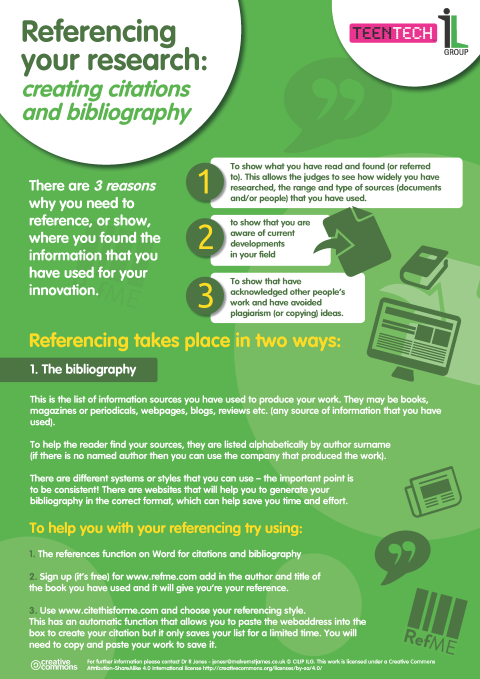
innovation.
To show what you have read and found (or referred to). This allows the judges to see how widely you have researched, the range and type of sources (documents and/or people) that you have used.
To show that you are aware of current developments in your field.
To show that have acknowledged other people’s work and have avoided plagiarism (or copying) ideas.
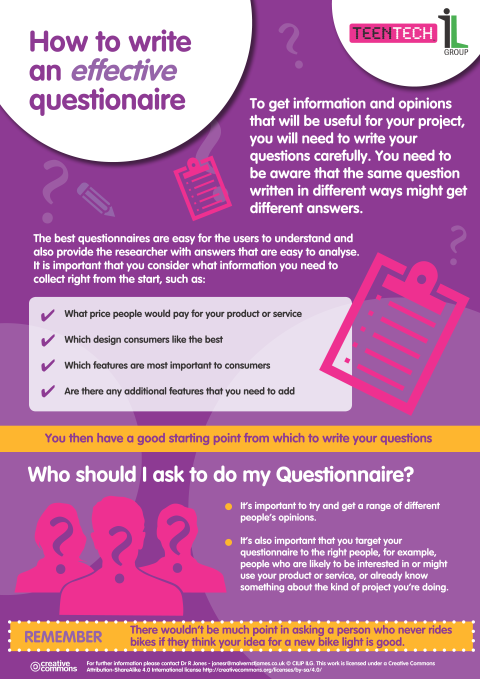
The best questionnaires are easy for the users to understand and also provide the researcher with answers that are easy to analyse. It is important that you consider what information you need to collect right from the start.
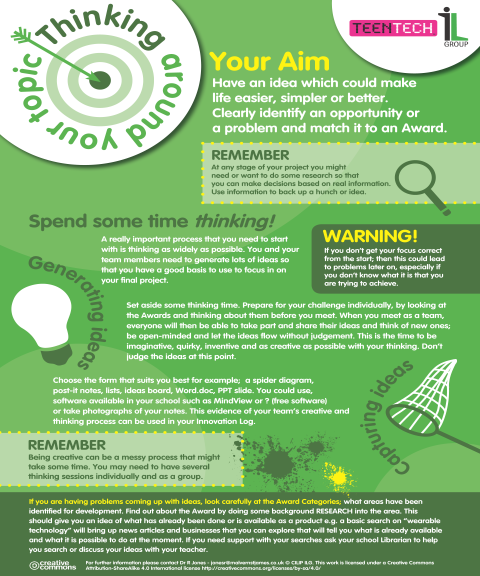
Spend some time thinking!
A really important process that you need to start with is thinking as widely as possible. You and your team members need to generate lots of ideas so that you have a good basis to use to focus in on your final project.
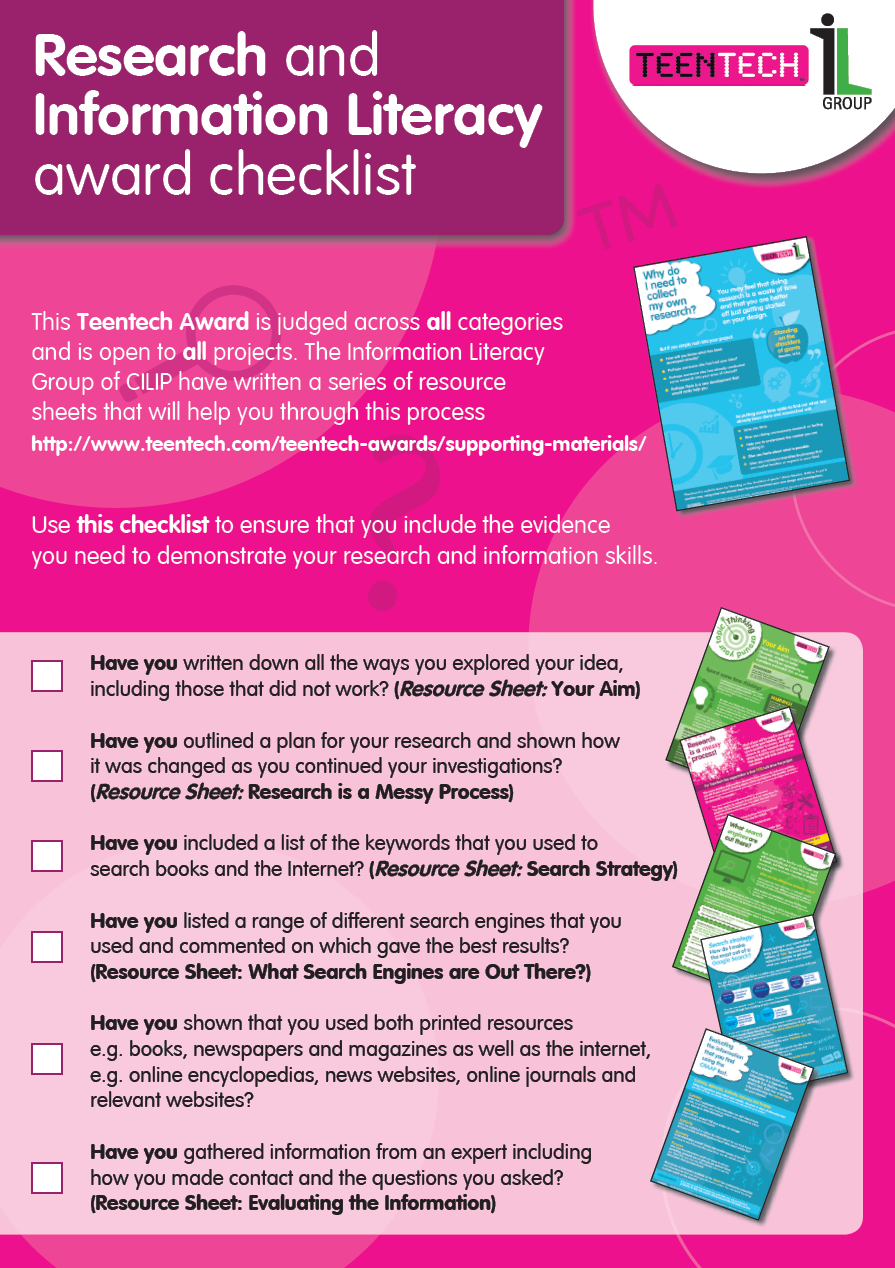
Use this checklist to ensure that you include the evidence you need to demonstrate your research and information skills.
